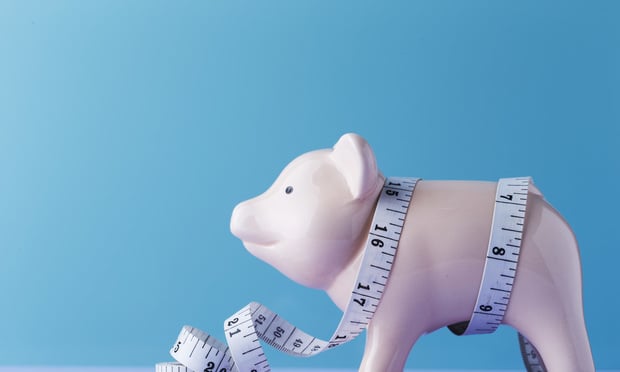The emergence of cooperatives in Cuba and President Obama'sreestablishment of relations with the country has attracted theattention of U.S. cooperatives and credit unions. About the size ofCalifornia and home to 11.3 million people, the Caribbean islandnation could become the next great success for the globalcooperative movement.
|But establishing a credit union beachhead in Cuba won't be aseasy as it may seem, according to Dr. Sandra Torres, aninternational management consultant, assistant professor at theMiami Dade College School of Business and former auto programsmanager at the $550 million Tropical Financial Credit Union inPembroke Pines, Fla.
|Lack of a private sector, the virtual absence of Internetconnectivity and knowledge that a totalitarian regime, howeverrelaxed, is still looking over everyone's shoulder should givewould-be business developers pause. What's more, since control offinancial services still rests squarely in the hands of governmentauthorities, the development of credit unions – either homegrown oras part of U.S. outreach efforts – will be a long, slowprocess.
|Torres, the New York City-born daughter of a Cuban national whoemigrated to the U.S. in 1942, outlined five distinct hurdlescredit unions and other financialinstitutions could face trying to do business in Cuba.
|1. There are one too many Cuban currencies.First and foremost, Cuba needs to stabilize its currency situation,Torres said. U.S. visitors to Cuba exchange their American dollarsupon arrival for Cuban convertible pesos, known locally as“chavito” or CUCs, Torres said. The exchange rate is generallyone-to-one, so visitors know exactly what they are getting.
|Cuban residents are paid in regular Cuban pesos, which currentlyhave an exchange rate of 26.5 to one. Whereas, one Cuban CUC isworth one American dollar, one Cuban peso currently is worth 3.77American cents.
|The average Cuban's monthly salary is 471 pesos, or about $20.By comparison, the average minimum wage throughout U.S. federal andstate prison systems is $0.93 per day, according to the nonprofitadvocacy group Prison Policy Initiative. Based on a 40-hourworkweek, Cubans make 7 cents per day more than U.S. prisoners.
|But while pesos do have an international exchange rate, CUCs donot and the Cuban government will not exchange what visitors don'tspend for American dollars. Leave Cuba with a pocketful of unspentCUCs, Torres said, and you could wind up with some expensivesouvenir paper.
|“Cuba needs currency reform and then salary reform,” Torressaid. “You can't set up a financial institution in a country with adual currency going on.”
|| 2. Cooperatives are not a new concept in Cuba, but creditcards are. The Cuban government has learned to balance itsown books over the past decade by offloading business enterprisesonto the workers who operate them, turning them into worker-owned cooperatives that then pay taxes back to thegovernment. The agricultural sector has paved the way, but serviceindustries also have led to the formation of cooperatives.
2. Cooperatives are not a new concept in Cuba, but creditcards are. The Cuban government has learned to balance itsown books over the past decade by offloading business enterprisesonto the workers who operate them, turning them into worker-owned cooperatives that then pay taxes back to thegovernment. The agricultural sector has paved the way, but serviceindustries also have led to the formation of cooperatives.
The cooperatives operate as private enterprises and even havetheir own bank accounts. The workers make deposits that earninterest and even take out small loans. But that's where thefinancial sophistication ends, Torres said.
|“Cubans do not have credit cards,” said Torres, who has traveledto Cuba a dozen or more times in her life to visit family membersand bring them goods from the U.S. “They also have to learn aboutthe concept of credit and that loans have to be paid back. That'snot part of their cultural understanding.”
|| 3. Debit cards do exist, but there's need for greaterfinancial sophistication. Many Cubans, especially thosewho are retired, are paid using a targeta magnetica –literally a “magnetic card” – that operates like a debit card andallows Cubans to pay for goods and services with a familiar cardswipe.
3. Debit cards do exist, but there's need for greaterfinancial sophistication. Many Cubans, especially thosewho are retired, are paid using a targeta magnetica –literally a “magnetic card” – that operates like a debit card andallows Cubans to pay for goods and services with a familiar cardswipe.
But that's where the 21st century ends for Cuban financialservices, Torres said. Existing financial institutions do not issuemonthly statements to depositors, who must go to the teller windowwith their savings passbook to get their account informationmanually updated. Some employers do issue paper checks, butmuch of the funds transaction is done through magnetic cards.
|“For most Cubans, everything is done with the state and theamounts in question are really very small,” Torres said. “There isgoing to be a lot of consumer education that needs to go on.”
|| 4. Most Cubans don't understand the demands of a businessculture. After a half-century of communist rule, mostCubans operate at much the same income levels and personal ethos.Physicians, like laborers, often take the bus to work and very fewcan afford to own any of the fabled classic American cars for whichthe island nation has become known, Torres said.
4. Most Cubans don't understand the demands of a businessculture. After a half-century of communist rule, mostCubans operate at much the same income levels and personal ethos.Physicians, like laborers, often take the bus to work and very fewcan afford to own any of the fabled classic American cars for whichthe island nation has become known, Torres said.
“You buy a 1955 Buick with a rebuilt Russian diesel engine, butvery few Cubans can afford to pay the 200,000 pesos that theycost,” Torres said.
|With little disposable income and a lack of earningopportunities, many Cubans pay little attention to absenteeism andbeing late for work. With the exception of foreign hotels thatcater to tourists, there is little concern for customer service andliterally no opportunity to return shoddy merchandise for arefund.
|“The very people whom credit unions might want to attract don'tunderstand business concepts as we know them,” Torres said.“Employees working for foreign entities may be up to it, but that'sa small minority.”
|People will have be trained not only in how credit unions dobusiness, but in how business is done in general if credit unionswant to succeed, she added.
|| 5. Then there are the regulations andbureaucracy. Any country with a centralized economy oftenhas a top-heavy bureaucracy that makes getting things donedifficult at best, and Cuba is no different, Torres said. Inoperational terms, that means that no one is willing tomake a decision and everyone is going to have to ask hisor her superior what can be done to address an issue.
5. Then there are the regulations andbureaucracy. Any country with a centralized economy oftenhas a top-heavy bureaucracy that makes getting things donedifficult at best, and Cuba is no different, Torres said. Inoperational terms, that means that no one is willing tomake a decision and everyone is going to have to ask hisor her superior what can be done to address an issue.
In a centralized economy, regulations abound and in Cuba's casecredit unions may also face a crisis of misunderstanding andmistrust, if only because of the population's unfamiliarity withfinancial cooperatives, Torres said.
|“They're likely to say, 'Who are these people?' when talkingabout the credit unions,” Torres said. “They will say, “Mygovernment is my government, but what do you mean I own thisbank?'”
|Coupled with the sheer challenges of teaching the population theways and means of business culture, no enterprise is simply goingto land in Havana and open its doors to a waiting public. Therewill be a lot of education necessary, Torres said.
|“That's not to say that credit unions don't have an in becausewe are doing this for the people,” Torres said. “But no matter whoyou are, you will have to in some way deal with the Cubangovernment, because they're still there.”
|What Not to Do When You Visit Cuba
|Cuba is a beautiful Caribbean country with culture, traditionand history, not to mention hand-rolled cigars, fiery rum andbeautiful beaches. But there are things you must not do when youvisit Cuba, according to Dr. Sandra Torres.
|• Stay away from anyone who offers you anything on thestreet that you can't buy in state-owned stores. Thisincludes any form of contraband, as well as young women or youngmen for obvious reasons, Torres said. In fact, just to besafe, don't even buy any cigars or rum, she added.
|• Do not exchange money with people on thestreet. The better rate they promise you usually isn'tbetter, Torres said, and you never want to show your money inpublic.
|• Stay away from talking politics in all itsforms. You might not like the reaction you get no matterwhat you say, and you never want to give anyone from the governmentany reason to pay special attention to you.
|• Always travel with a guide. Cuba hasbeautiful mountains, beaches and jungles that are there to beenjoyed, but traveling with a guide, especially in a country withsuch low income levels, is simply safer, Torres said.
|“In the end, a gringo does not need to go down there just to seethe sights unless there is a purpose for your visit,” Torres added.“Don't expect what you see in Puerto Rico.”
|Complete your profile to continue reading and get FREE access to CUTimes.com, part of your ALM digital membership.
Your access to unlimited CUTimes.com content isn’t changing.
Once you are an ALM digital member, you’ll receive:
- Critical CUTimes.com information including comprehensive product and service provider listings via the Marketplace Directory, CU Careers, resources from industry leaders, webcasts, and breaking news, analysis and more with our informative Newsletters.
- Exclusive discounts on ALM and CU Times events.
- Access to other award-winning ALM websites including Law.com and GlobeSt.com.
Already have an account? Sign In
© 2024 ALM Global, LLC, All Rights Reserved. Request academic re-use from www.copyright.com. All other uses, submit a request to [email protected]. For more information visit Asset & Logo Licensing.









